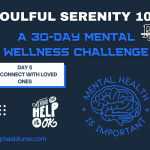
Conflict is an inevitable part of any human relationship, whether it’s between romantic partners, friends, family members, or colleagues. While conflict itself is not inherently negative, how we handle it can significantly impact the quality and longevity of our relationships. In this article, we will explore conflict resolution strategies that can help you navigate conflicts in a healthy and constructive way, ultimately leading to closer and more resilient relationships.
Understanding Conflict
Before delving into specific conflict resolution strategies, it’s essential to understand the nature of conflict itself. Conflict arises when individuals have differing opinions, needs, or goals, and it can manifest in various forms, including verbal disagreements, silent tension, or even physical altercations. Conflict is not necessarily a sign of a failing relationship; rather, it is a natural occurrence in any dynamic where people interact.
Conflict can be categorized into two broad types: constructive and destructive. Constructive conflict can lead to positive outcomes, such as improved understanding, innovation, and growth in a relationship. On the other hand, destructive conflict can damage relationships, causing emotional harm and long-lasting resentment.
The goal of conflict resolution is not to eliminate conflict entirely but to manage it effectively, turning destructive conflicts into constructive ones. Here are some conflict resolution strategies to help you achieve that.
1. Active Listening
One of the most crucial skills in conflict resolution is active listening. Active listening involves not only hearing the words spoken by the other person but also understanding their perspective and emotions. When conflicts arise, people often focus on expressing their own thoughts and feelings, neglecting to truly listen to the other party. This can escalate tensions and hinder resolution.
To practice active listening:
- Give your full attention: Make eye contact, put away distractions, and focus solely on the conversation.
- Don’t interrupt: Allow the other person to express themselves fully before responding.
- Use verbal and non-verbal cues: Nodding, mirroring their emotions, and using phrases like “I see what you mean” or “Tell me more” can show that you are actively engaged.
- Ask clarifying questions: Seek to understand their perspective better by asking questions like “Can you explain that further?” or “How did this make you feel?”
Active listening can help create an atmosphere of empathy and understanding, making it easier to find common ground and resolve conflicts more effectively.
2. Empathy
Empathy is the ability to understand and share the feelings of another person. It plays a significant role in conflict resolution by allowing you to connect with the emotions and experiences of the other party. When people feel understood and validated, they are more likely to engage in constructive dialogue.
To practice empathy:
- Put yourself in their shoes: Try to imagine how the other person feels and what their perspective is.
- Express empathy: Let them know that you understand their feelings and concerns. Saying something like “I can see that this situation is really upsetting for you” demonstrates empathy.
- Avoid judgment: Suspend judgment and refrain from making assumptions about their intentions or emotions.
Empathy can help de-escalate conflicts by showing that you genuinely care about the other person’s feelings and are willing to work towards a resolution that considers both perspectives.
3. Effective Communication
Clear and effective communication is essential for resolving conflicts. Misunderstandings often arise from miscommunication, and unresolved conflicts can result from poor communication skills. To improve your communication during conflicts:
- Use “I” statements: Express your thoughts and feelings using “I” statements, such as “I feel hurt when…” instead of accusatory “You” statements like “You always…”
- Stay calm and composed: Avoid shouting, name-calling, or other aggressive behaviors that can escalate the conflict.
- Stay focused on the issue at hand: Don’t bring up past conflicts or unrelated grievances. Stick to the specific problem you are trying to resolve.
- Be honest and transparent: Share your thoughts and feelings openly and honestly, even if they make you feel vulnerable.
- Summarize and paraphrase: After the other person speaks, summarize what they said to ensure you understood them correctly. This shows that you are actively engaged in the conversation.
Effective communication fosters mutual understanding and paves the way for finding common solutions.
4. Avoid Blame and Defensiveness
Blaming and defensiveness are common pitfalls in conflict resolution that can hinder progress. When we blame others for the conflict or become defensive, we create a hostile atmosphere that makes it difficult to find a resolution. Instead:
- Focus on the issue, not the person: Address the problem itself rather than attacking the other person personally.
- Use “we” language: Frame the conflict as a mutual problem to be solved together. For example, say, “How can we find a solution to this issue?” instead of “You need to fix this.”
- Acknowledge your role: Be willing to admit when you have contributed to the conflict or made a mistake.
By avoiding blame and defensiveness, you create a more collaborative and constructive environment for conflict resolution.
5. Take a Break When Necessary
Sometimes, conflicts become too heated or emotionally charged to resolve effectively in the moment. In such cases, it’s okay to take a break and cool off. It’s essential to communicate your intention to take a break and set a specific time to revisit the issue later. During the break:
- Reflect on your feelings: Use the time to gain clarity about your own emotions and thoughts.
- Avoid rumination: Don’t dwell on the conflict or engage in negative self-talk.
- Stay open to resolution: Remember that the goal is to come back to the discussion with a willingness to find a solution.
Taking a break can prevent conflicts from escalating and give both parties the space they need to approach the issue more calmly and rationally.
6. Seek Compromise and Win-Win Solutions
In many conflicts, there is room for compromise and win-win solutions where both parties can get some of what they want. Rather than approaching conflicts as a zero-sum game where one person must win and the other must lose, aim for solutions that benefit both sides.
To seek compromise:
- Identify common goals and interests: Look for shared objectives that can be the basis for compromise.
- Brainstorm solutions: Generate multiple potential solutions, and be open to creative ideas.
- Negotiate and find middle ground: Work together to find a solution that addresses both parties’ needs to the best extent possible.
Compromise can lead to stronger relationships, as both parties feel that their concerns are being taken seriously and that their needs are being met.
7. Set Boundaries
Establishing and respecting boundaries is crucial for preventing conflicts from arising in the first place. Boundaries define what behavior is acceptable and unacceptable in a relationship, and they provide a framework for healthy interactions. To set boundaries:
- Communicate your boundaries: Clearly express your limits and expectations to the other person.
- Listen to their boundaries: Be receptive to their boundaries as well and respect them.
- Revisit and adjust boundaries as needed: As circumstances change, it may be necessary to reassess and modify boundaries.
Setting and maintaining boundaries helps prevent misunderstandings and reduces the likelihood of conflicts arising from crossed boundaries.
8. Use Conflict Resolution Mediation
In some cases, conflicts may be too complex or deeply rooted to resolve on your own. In such situations, enlisting the help of a neutral third party can be beneficial. Conflict resolution mediation involves a trained mediator who facilitates communication between the parties, helps them understand each other’s perspectives, and guides them toward a mutually agreeable solution.
Mediation can be especially useful in workplace conflicts, family disputes, or situations where emotions are running high. A skilled mediator can help keep the conversation productive and prevent it from devolving into further conflict.
9. Apologize Sincerely
Apologies are a powerful tool in conflict resolution. When you’ve made a mistake or contributed to a conflict, a sincere apology can go a long way in repairing the relationship. A genuine apology includes the following elements:
- Acknowledgment of wrongdoing: Admit what you did wrong and take responsibility for your actions.
- Expressing remorse: Show genuine regret for any harm or hurt caused.
- Making amends: If possible, offer a plan to make things right or prevent the issue from happening again.
A sincere apology can help rebuild trust and open the door to resolution.
10. Learn from Conflicts
Conflicts, when handled effectively, can be opportunities for personal and relational growth. After a conflict is resolved, take some time to reflect on what you’ve learned from the experience. Ask yourself:
- What triggered the conflict?: Understand the root causes and patterns that led to the disagreement.
- How did you contribute to the conflict?: Assess your own role in the situation.
- What can you do differently in the future?: Identify strategies and skills you can develop to prevent similar conflicts from arising.
By learning from conflicts, you can become more adept at resolving them and strengthening your relationships over time.
Conclusion
Conflict resolution is an essential skill for building and maintaining closer relationships. By practicing active listening, empathy, effective communication, and other strategies, you can navigate conflicts in a healthy and constructive manner. Remember that conflict itself is not necessarily detrimental to a relationship; it’s how you handle it that matters most. By approaching conflicts with a willingness to find common ground and learn from the experience, you can foster closer and more resilient relationships with those you care about.







